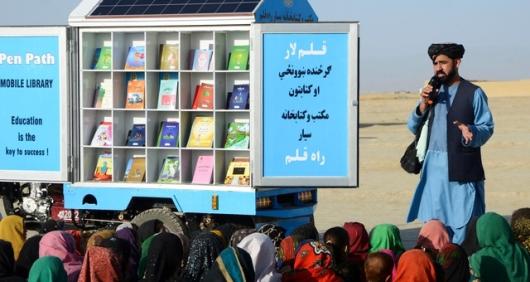Urgent Action Outcome: Education Activist Matiullah Wesa Released

Education activist Matiullah Wesa was released after nearly seven months in prison. He was jailed for promoting girls right to education.
NO FURTHER ACTION IS REQUESTED. MANY THANKS TO ALL WHO SENT APPEALS.
Matiullah Wesa was arbitrarily arrested by the Taliban’s General Directorate of Intelligence (GDI) on 27 March 2023, while returning from evening prayer at the mosque. The following day, the GDI raided his house and confiscated his personal mobile and laptop. On 29 March, the Taliban spokesperson confirmed his arrest, accusing him of illegal activities. Since Matiullah’s arrest, his family was permitted only sporadic and brief visits. Moreover, he was denied access to a lawyer to challenge the legitimacy of his detention. He was also deprived of access to his medication.
From April through to late October, we campaigned extensively for Matiullah Wesa’s release in various ways. These include individual and group letters to the Taliban’s General Directorate of Intelligence, and organizing on social media platforms to question the Taliban’s unlawful arrest, the lack of due process in his case, and the continuing infringement of Wesa’s right to freedom. Throughout this period, his family member, who is currently residing outside Afghanistan, provided us with regular updates regarding the family’s prison visits to Wesa and underscored the need for sustained actions for his release. Wesa’s family perceived these efforts as exerting strong pressure on the Taliban. Matiullah Wesa’s family member believes his release would not have been possible without the sustained pressure created through our campaigning.
Matiullah Wesa was released on 26 October 2023, after enduring over seven months of imprisonment. He was freed following a court ruling which found no evidence for the allegation made against him by the Taliban GDI. He is currently living with his immediate family in Afghanistan.
As an education activist, Matiullah Wesa founded and led PenPath, a collective of 3,000 volunteers who campaign in remote districts and provinces of Afghanistan on the importance of education, especially girls’ education. PenPath has implemented volunteer-led programs aimed at advancing human rights and girls’ access to education. Through PenPath, Wesa and his colleagues worked with religious scholars and tribal elders to build community support for educating all children, setting up schools in villages where there was no government education, and sending mobile classrooms to the most remote areas.